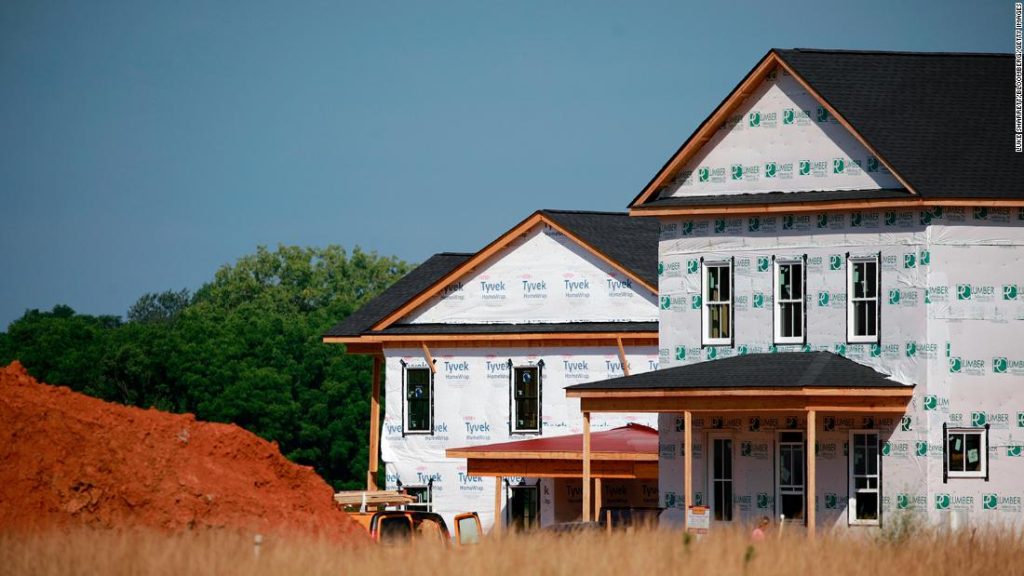
Newly built home sales fell 12.6% in July compared to June and were down 29.6% from a year ago, according to a joint report from the US Department of Housing and Urban Development and the US Census Bureau. This was the second consecutive month of declines.
Just 511,000 new homes were sold last month, at a seasonally adjusted annual rate, down from 585,000 new homes in June. This is the lowest sales number since January 2016. A year ago, 726,000 newly built homes were sold.
Meanwhile, the median price for building a new home rose to $439,400, compared to $402,400 the previous month.
“New home sales continue to plummet under the weight of rising prices and higher mortgage rates,” said Robert Frick, corporate economist at Navy Federal Credit Union.
Frick said that with new home inventories rising, there is likely to be a dip in prices, although there is a limit to how much they can go down given the cost of materials, land and labor that goes into construction costs.
“Given that builders are backing away from their plans to build more homes, we won’t be building our way out of the current housing crisis for years,” Frick said.
John Fish, CEO of Suffolk Construction and chairman of the Real Estate Roundtable, said the latest data continues to paint a difficult picture for the US housing market.
“As the Federal Reserve tries to bring down inflation, rising construction and land costs, supply chain disruptions and labor shortages are contributing to the growing gap between housing demand and supply,” he said.
Fish said that controlling inflation in the short term would be an important step toward improving the housing market and the broader economy. But there are structural issues that need to be addressed for a successful economy in the long run, Fish said, such as developing land use policies that align with federal and local governments, developing more housing, and investing in technologies that would help lower the cost of construction to make development more attractive.
This time around, the housing market adjustment is likely to be much less severe than the correction in 2008 because there are still fewer homes for sale than families want to buy, said Kelly Mangold of RCLCO Real Estate Consulting.
“Primary demand for the sale of new homes remains,” she said.
One consequence of the economic downturn for buyers is that there may be less competition and more price cuts.
“For those who are still eager to buy, the market is becoming a less competitive space and buyers are not facing the bidding wars that characterized many of the earlier phases of the pandemic,” she said.




More Stories
JPMorgan expects the Fed to cut its benchmark interest rate by 100 basis points this year
Shares of AI chip giant Nvidia fall despite record $30 billion in sales
Nasdaq falls as investors await Nvidia earnings